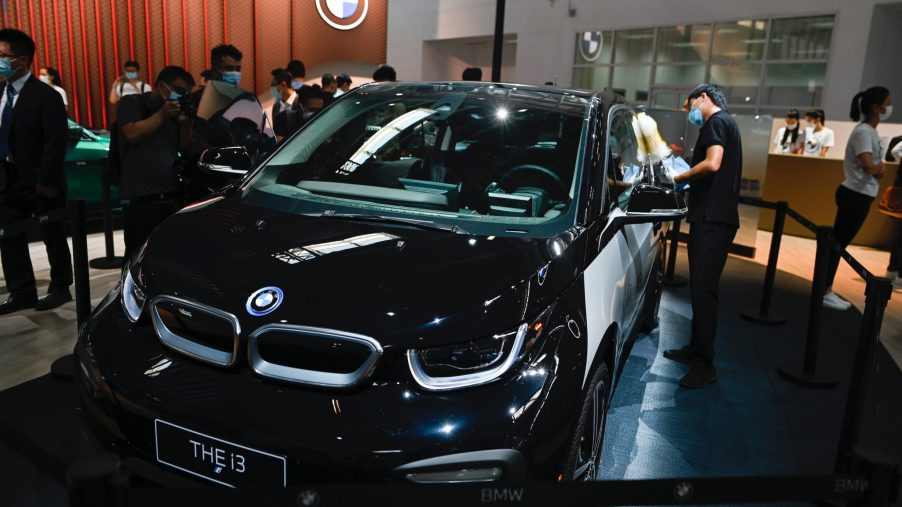
Unproved BMW i3 Problem Leads to Dropped Lawsuit
A car is often either the No. 1 or No. 2 most-expensive purchase a person can make, depending on whether they rent or own their home. When you get into the realm of luxury brands, that becomes even more true because you’re spending tens of thousands of dollars on the vehicle. When you’re spending that much money on your car, you want to make sure it meets — if not exceeds — all of your expectations. If you feel it falls short, you’re not going to be happy. That’s what happened with a group of BMW i3 owners who filed a class-action lawsuit against the German manufacturer.
An overview of the BMW i3
BMWUSA.com describes the i3 as a “compact, fully electric sedan.” Edmunds writes it was one of the first two models in the brand’s then-new environmentally friendly “i” sub-brand with the 2014 model year, saying it ” looks unlike any BMW that’s come before” but that it’s “one of the most innovative on the road.”
Despite it being a departure for BMW when it was launched, the site noted that the i3 still maintained “the fundamentals of the BMW brand,” including “rear-wheel drive, responsive handling, a composed ride and energetic performance.” If you’re looking to get a 2021 model, it’s going to cost you more than $44,000 as a starting price, and if you add on the Range Extender, the base MSRP jumps up to $48,300.
BMW i3 owners sue over a perceived range problem
CarComplaints.com reports that in 2016, 16 owners of i3 vehicles from 2014-16 filed a class-action lawsuit against the company, claiming their cars “suddenly slowed down when the battery charge levels dropped.” The plaintiffs explain the Range Extender as being “a generator that produces electricity to extend the range of the i3 from 81 miles to 150 miles per battery charge.”
One lessee of an i3 says his vehicle lose power and slowed down on multiple occasions while he was traveling uphill when the charge on the battery was around 5 percent and the Range Extender was activated. The members of the class action allege BMW hid the defect of sudden deceleration when the battery drops to a certain level from consumers so that the automaker could sell or lease the i3 for more money than it is worth. The lawsuit had “40 claims related to warranties, consumer protection, fraud, and other federal and state laws.”
The investigation into the claims and the verdict
The plaintiffs hired an engineering expert to describe how the Range Extender allegedly malfunctioned on the vehicles, but Judge Terry J. Hatter, Jr. decided “the evidence fell short of proving the cars contain design defects.”
The judge says the expert didn’t prove that the i3’s design was defective, but rather he provided his opinion that “the car was designed to function just as the plaintiffs said,” with a certain charge level and driving conditions causing the car to decelerate. In the judge’s ruling, he pointed out the expert “stated that he was not opining as to whether the design was defective.” Without an expert’s opinion to support the plaintiffs’ claims, the judge decided that there wasn’t enough evidence to support a favorable verdict for the class members because they were only able to talk about their “own personal experiences” with the i3 and its Range Extender.
Judge Hatter ruled that the determination of whether a car’s design is flawed “beyond the common knowledge of the average layman.” As a result, the lawsuit — which, by 2020, was down to just a few claims remaining, and all from California consumers — was dismissed in March 2021.


